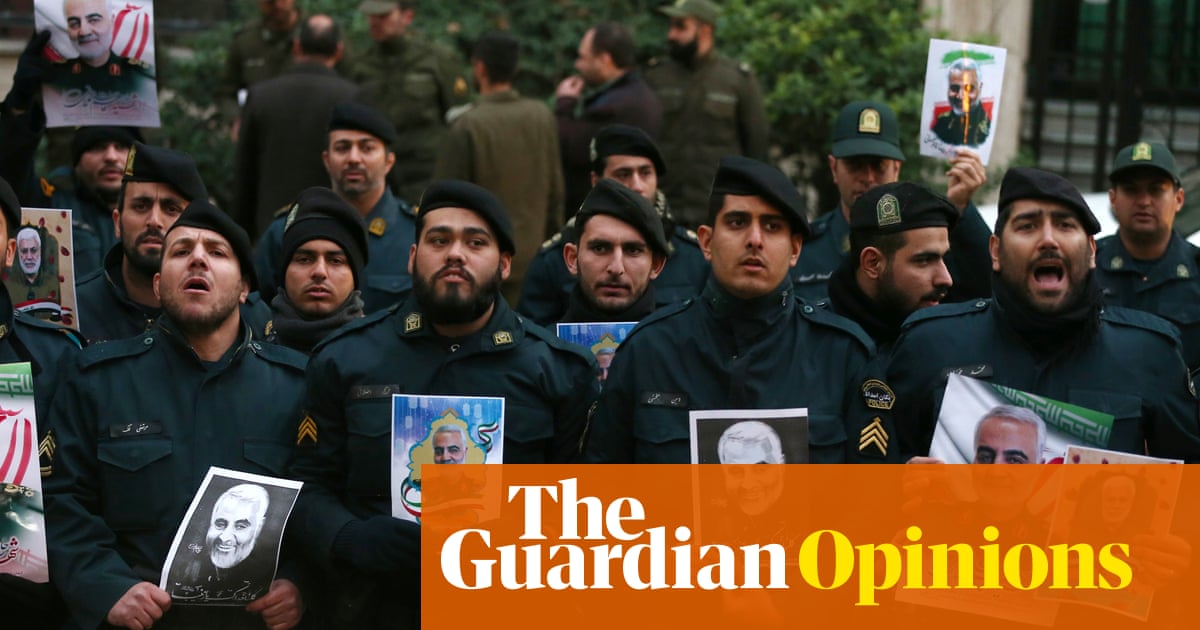The attack will embolden Irans hardliners, further destabilize the region, and put American lives across the world at risk

That explosive national security crisis weve been concerned that Donald Trump would be faced with at some point in his presidency? It may be here.
Americas assassination of Qassem Suleimani, head of the Quds Force of Irans Islamic Revolutionary Guard Corps, could have deadly ramifications for the United States and its allies and partners in the Middle East and beyond. It seems highly unlikely that the Trump administration is prepared for what comes next.
Suleimani was a ruthless terrorist who was responsible for countless deaths, including American ones.
But the question is not whether hes bad. The question is whether it was in Americas interests to kill Suleimani now and thats assuming there could be a domestic and international legal basis for the killing in the midst of already deadly tensions between the US and Iran. Killing Suleimani was the equivalent of lighting a match on top of a powder keg. There is now an extreme potential of escalation.
Lets remember how we got here. The United States and Iran have been at odds for decades. Americas disastrous invasion of Iraq set off a new, deadly round of tensions when Iran organized attacks on American troops in Iraq, attacks often coordinated by Suleimani. But in 2015, the United States and Iran signed an agreement that successfully stopped Iran from pursuing nuclear weapons. Despite the threatening activity of Iranian proxies in places such as Yemen and Lebanon, the US and Iran both fought against the Islamic State. The relationship had become far more complex, and there was a high-level dialogue between the two countries.
Then Trump took office, ramped up the pressure, and, in 2018, withdrew from the nuclear deal. Since then, tensions between the two countries have increased and multiple moments in 2019 alone brought the two countries to the brink of conflict. The Trump administration has brought us to the precipice we are at today, and that is why this assassination was so dangerous. With so many Americans in Iraq vulnerable to Iranian attacks, as was made clear by the storming of the embassy in Baghdad, killing Suleimani was a massive escalation that will only make it more difficult to end the cycle of violence.
The danger now isnt necessarily all-out war; while miscalculation could certainly result in a broader conflict, neither side wants it, and Iran knows that it would not be wise to fight America in a conventional war. Rather, the danger is that weve blundered right into something Iran is very good at: asymmetric escalation.
Iran is busy all around the Middle East, from Iraq to Syria, Lebanon to Yemen, and while Suleimani is gone, the threat to Americans and our allies remains very real. Iran could consider a wide range of targets, from Americas allies (think Israel) to American personnel, facilities and interests across the world. Iran has carried out assassinations in Europe and even plotted to assassinate the Saudi Arabian ambassador to the US. Retaliations could come anywhere.
The assassination of Suleimani will not only endanger America, it will also endanger our friends, who are nervous about getting caught in the middle of a conflict between the US and Iran. Iraqs Prime Minister condemned the assassination and made clear that it violated the terms of Americas military presence in Iraq. European allies urged caution, and the United Kingdom, which has troops in Iraq as well, reportedly was not notified in advance.
Furthermore, this move will likely strengthen hardliners in Iran. The more the US escalates, the more it closes the door to diplomacy and the more likely are reprisals from Iran.
None of this was necessary or inevitable: Trump didnt have to pull out of the nuclear deal, didnt have to send more US troops to the region, and didnt have to kill Suleimani. But we are where we are, and the question is: what should America do now?
The United States must have three immediate priorities: first, protect American personnel; second, coordinate closely with partners and allies; third, make clear that the United States wants to begin a direct dialogue with Iran.
The chances for Iranian attacks have skyrocketed as a result of this assassination; the US must move quickly to safeguard Americans abroad. The response will be different depending on the location: the US state department has ordered Americans to leave Iraq immediately. Elsewhere in the region and beyond Beirut, Riyadh, the Gulf, European capitals American embassies need to be on heightened alert and in touch with American citizens. And America needs to look closely at potential threats here at home.
America will also need to work closely with partners and allies around the world who may be under threat from Iranian retaliation. Diplomatic, intelligence, and security coordination will be essential.
And while the United States must immediately send messages to Iran through all available channels that it wants to open a dialogue to de-escalate the situation, it is difficult to believe that Iran would agree to the offer after a major escalation by America and with an administration that has no credibility and seems hell-bent on pressuring Iran.
The reality is that we are in the midst of a full-blown national security crisis of Trumps own making. And Trumps incompetent leadership, derision of diplomats and the intelligence community that he needs now more than ever, and penchant for disastrous decisions means that this is likely to get worse before it gets better.
Original Article : HERE ;
from MetNews https://metnews.pw/the-strike-on-suleimani-was-wildly-reckless-blowback-will-come-michael-h-fuchs/
No comments:
Post a Comment